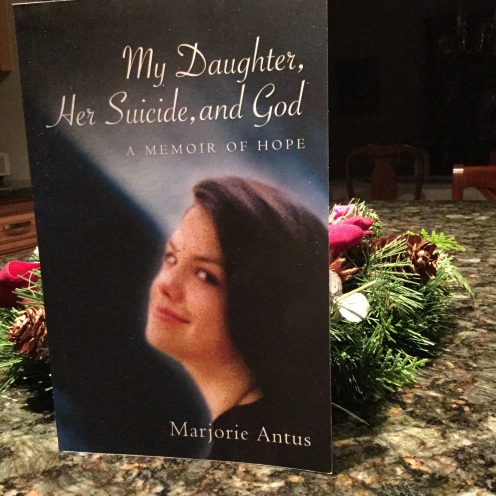In the hours after my daughter Mary’s suicide in 1995, my grieving family was treated well. First responders–rescue squad, extended family, neighbors, medical emergency team, clergy and police–acted with compassion. I’ve always thought it was their collective good will that stabilized us and aided our recovery. And I don’t even want to think how much worse our lives would have been without the kindness of those good people–strangers, many of them.
Only a couple weeks after the suicide, though, awkwardness set in. By that, I mean social uncertainty–the raw emotion, avoidance, silence–that marked my interactions with others and seemed, in fairness, to cut both ways. In the first place, I wasn’t the person I’d been before Mary died. Whatever meaning Mary gave my life, and it was considerable, had been buried along with her. I was driven to talk about my daughter in order to make sense of that catastrophe, and I craved getting her name into conversations because I simply needed to say and hear it.
It was too intense for what would normally have been polite conversations. Friends were trying, it seems, to help me and protect themselves by switching to lighter topics, getting my mind off the devastation of my daughter’s life and giving me perspective. One motherly friend said, “Well, Marj, it could have been worse.” My unspoken response to that was, My daughter is dead. Please tell me how it could have been worse. I guess if she’d machine-gunned us all, that would have been worse.
Before long, my family began receiving professional therapy. I did finally learn to modify my comments about Mary, saving the unvarnished ones for my spiritual director behind a closed door. I learned discretion, eventually.
But I still appreciate the honesty of a sixty-five-year-old college professor several years after the suicide of his son: “I will keep friendships only with people whom I can bring up with ease these issues [of my son’s suicide]. Some people have a knack of saying insensitive and uncaring things. One good friend said why don’t you go out dancing instead of attending a suicide support group meeting. People can sometimes be hurtful and say stupid things. I’m glad some of the jackasses are gone—pseudo-friends and kin who are unable to handle anything like this—good riddance” ( Karen Mueller Bryson, Those They Left Behind, p.18).

Leave a comment